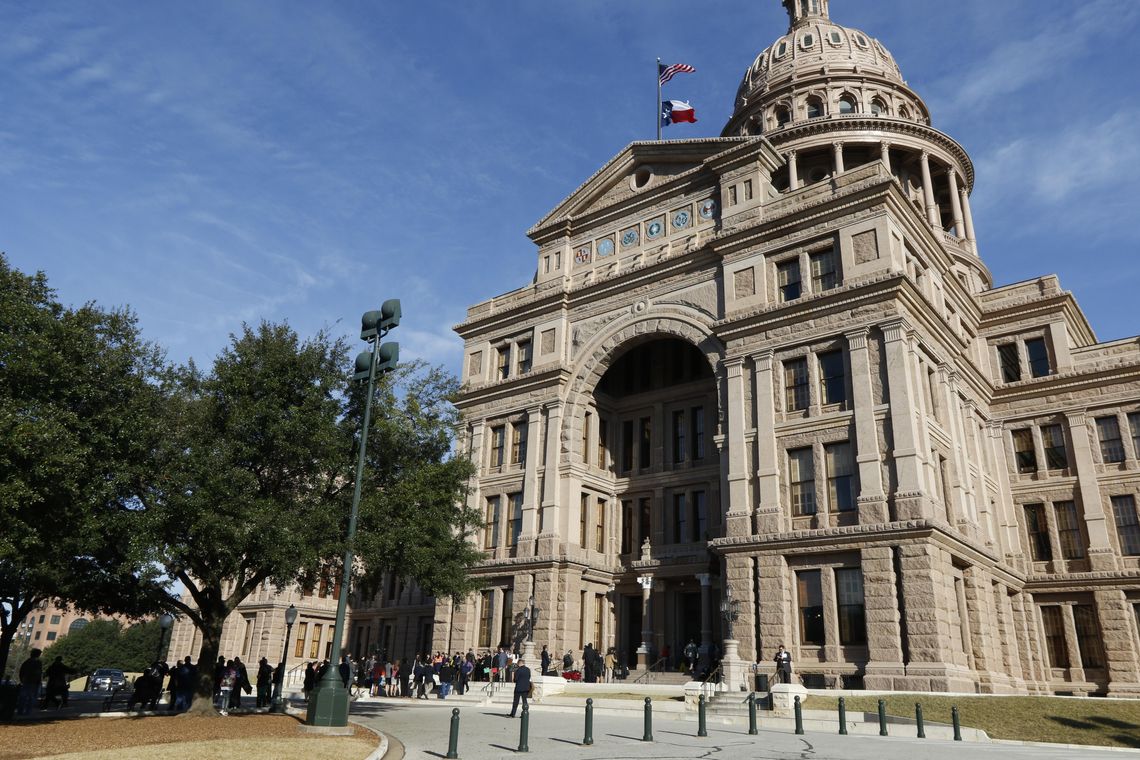Editor’s Note: This is the second of two articles about legislation that Texas House District 45’s new representative, Erin Zwiener (D-Driftwood), has proposed.
By noon on Friday — the last day for the unrestricted filing of bills and joint resolutions — State Rep. Erin Zwiener (D-Driftwood) had filed 43 bills, up from the 26 she had filed as of Thursday morning. Zwiener’s bills include several pieces of legislation inspired by Kinder Morgan’s proposed Permian Highway Pipeline route through Hays County.
Before Thursday morning, Zwiener had filed four bills regarding natural gas pipeline construction.
“And there’s probably a couple more to go,” she said.
The first bill Zwiener filed regarding natural gas pipeline construction was House Bill 2277, which would require the Texas Railroad Commission to go through the environmental impact study process before a pipeline can be built. Zwiener said many people think that an environmental impact study is already a requirement.
“It should be, but startlingly enough, it’s not,” she said.
Federal law requires such studies for interstate pipelines, Zwiener said, but not for intrastate pipelines.
“I find that very alarming,” she said.
An environmental impact study serves two purposes, Zwiener said: to understand the consequences of a project and to find ways to mitigate those consequences if the project moves forward. She said that Kinder Morgan representatives have said they are doing environmental studies but have not shared those with the public.
“I’m not willing to accept their assurances that they’ve done their environmental assessments,” she said. “... We need some public oversight and accountability.”
Another bill, HB 3324, would require pipeline operators to submit a site-specific contingency plan that “describes measures to be taken to control, contain and collect any discharge of fluids from the pipeline to minimize impacts to groundwater in this state.”
The state can reject a plan if it finds it is insufficient to safeguard groundwater supplies and will be required to send any plans accepted under this law to the U.S. Pipeline and Hazardous Materials Safety Administration or a successor agency.
“That’s something I hope we’ll dig into and talk about more,” Zwiener said, adding that she wants to make sure Texas is abiding by the federal Clean Water Act.
The Environmental Protection Agency has delegated Clean Water Act authority to the Texas Commission on Environmental Quality, or TCEQ. However, statutes prevent TCEQ from performing any oversight of oil and natural gas. Those industries fall under the Texas Railroad Commission.
“I have heard directly from the Railroad Commission that all they look at in the construction of these pipelines is safety,” Zwiener said, and not about the potential effects on groundwater or streams.
For HB 3326, Zwiener said, she has been working with the city of Kyle. The municipality is concerned that if the Kinder Morgan pipeline goes through and is buried at the proposed depth of 2-3 feet underground, she said, “That doesn’t leave any room for other infrastructure. … Kyle is growing so fast, the development potential they may lose is huge.”
HB 3326 would allow a municipality to require a pipeline to be buried up to 12 feet.
“We’re trying to allow them to set more reasonable standards,” Zwiener said.
Zwiener’s HB 3327 would require common carriers that intend to use eminent domain to acquire real property for a pipeline to send a written notice of intent to local officials, including the county judge and groundwater conservation districts.
“One of the concerns I’ve had is that our local elected officials didn’t know this pipeline was going through until landowners were already being contacted,” she said.
Notifying local officials could prove beneficial, since they know what kind of projects and what routes would make sense for their area and what would affect the environment, economy, tax base and public safety on a local level.
“They’re not drawing maps from an office in Kansas,” she said.
By noon on Friday, Zwiener had filed additional bills regarding pipeline construction, including one that calls for a temporary moratorium on the use of eminent domain by private pipeline companies until Sept. 1, 2021. Another would establish pipeline emergency preparedness fees to be collected for permits or registration for pipelines. The fees would be deposited in a fund that would be used for pipeline emergency preparedness grants to help fund projects like the creation of evacuation plans in the event of pipeline-related emergencies.







